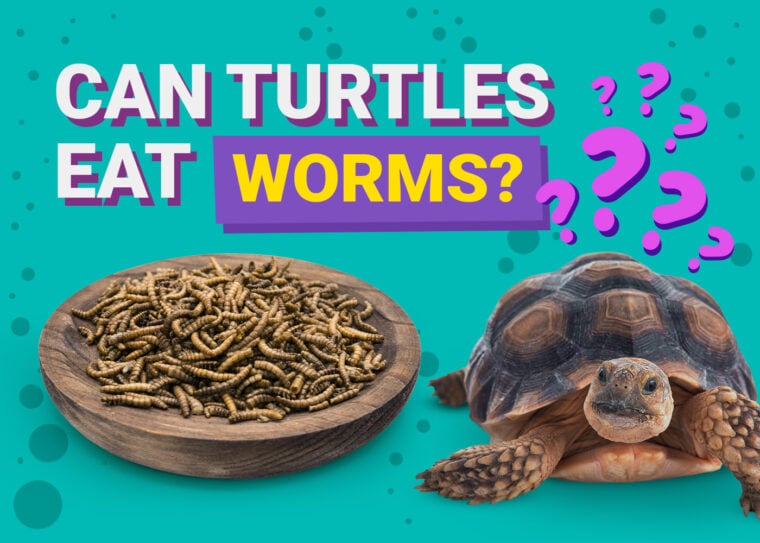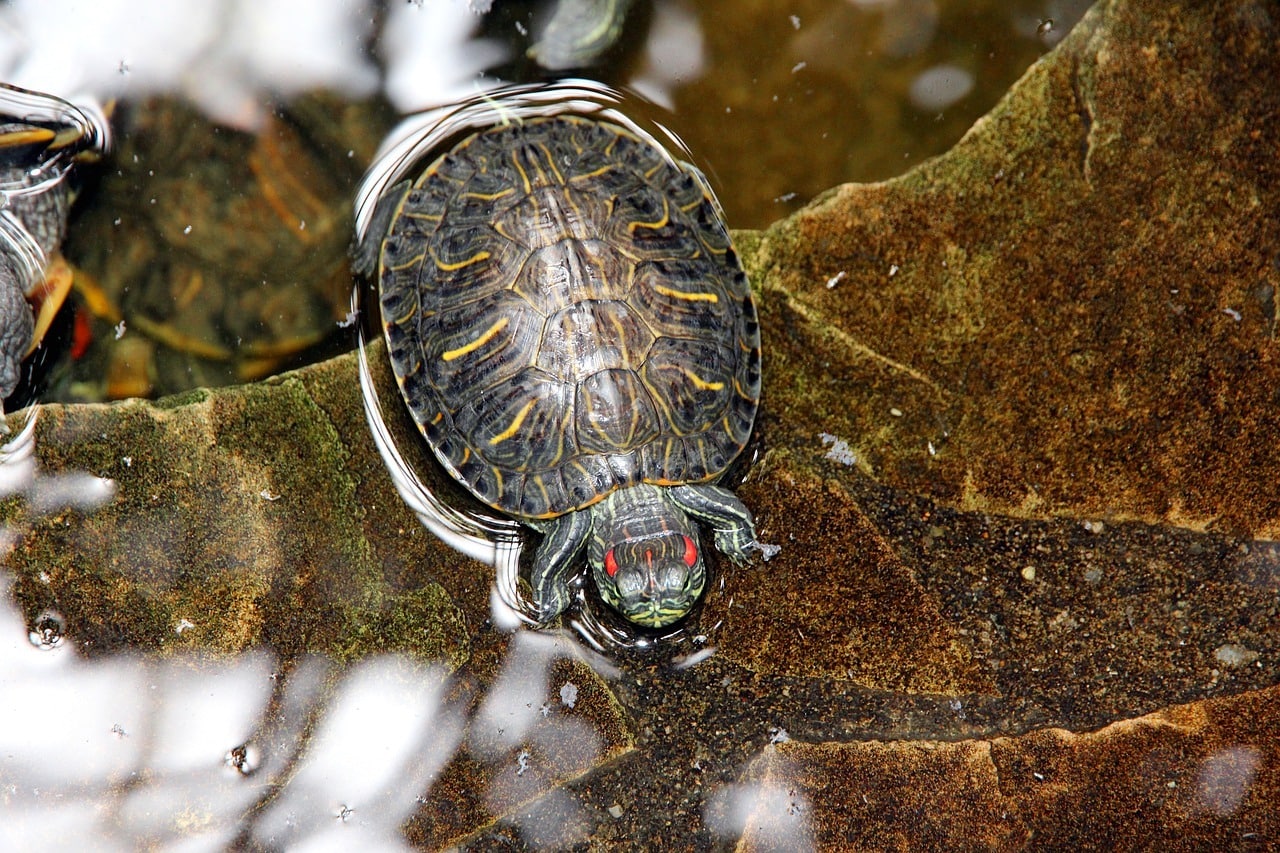
Turtles are fascinating animals and great pets for those interested in exotic pets. They’re relatively docile, don’t demand much attention, and are captivating to watch. One question you might have if you’ve recently adopted a turtle is whether they can eat worms. Turtles can eat worms if they are omnivores or carnivores; however, moderation is key when it comes to feeding your turtle worms. Herbivorous turtles shouldn’t be fed worms.
If you want more facts and info about feeding your turtle worms, including how many worms they can eat and safety precautions you might need to take, we’ll discuss everything you need to know below.
Do All Turtle Species Eat Worms?
Broadly speaking, turtles are divided into sea turtles, freshwater/aquatic turtles (also referred to as terrapins), and tortoises. Sea turtles aren’t kept as pets. Most freshwater turtle species are omnivores, and likely can eat worms. Almost all tortoises are herbivores, and shouldn’t be fed worms unless instructed so by your vet.

What Are the Nutritional Benefits Turtles Gain by Eating Worms?
Almost all worms are very high in protein, fat, and fiber. However, the amount each worm offers will vary depending on the species of worm, their nutrition, and their health. Just like how your turtle’s health is determined by what they eat, the prey you offer them will contain varying amounts of nutrition depending on what they eat, and how healthy they are. Therefore, it makes good sense to raise your own worms to feed your pets, as you can ensure that all prey you offer your pets are as healthy as possible. This is also generally more economical in the long run and saves you the hassle of repeatedly researching suppliers and waiting on deliveries for your pets’ food.
Worms also offer your turtle other nutrients, in the form of minerals and vitamins in varying amounts (depending on the same factors as explained above). Of noteworthy mention is the “Calci worm” – which is in fact the larvae of the black soldier fly. These worms are perhaps best known for their high calcium content, a very trait in live prey.
In summary, almost all healthy worms you offer your pet will contain high amounts of protein, fat, and fiber, and variable amounts of other nutrients.

Which Worms Are Safe for Turtles to Eat?
You might be surprised to learn that there are around 20,000 worm species with seven different classifications. Most of the worms are safe for turtles to eat, but finding many of them is difficult. To make it easier for you to feed your turtle healthy, nutritious worms, we’ve compiled a list of the most common below.
How Should You Feed Worms to Your Turtle?
Feeding worms to your turtle isn’t difficult but requires a small amount of preparation. You can place the worms in your turtle’s enclosure and let them sit there. Your turtle will approach them and eat them at leisure, but keep in mind that the worms might crawl off in the meantime.
Most veterinary nutritionists advise “gut-loading” worms before they’re offered to your pet. This process involves feeding the worms a high amount of nutrition 1-2 days before they’re fed to your pet. Chief among these is calcium, as most live prey lack enough calcium. They’re also often dusted in calcium before being offered to a pet.
The amount of calcium to feed them before they’re offered to your turtle varies, however, most worms will likely not accept high calcium levels, with many worms not eating foods with over 12% calcium. 8% seems to be an acceptable level of calcium that most worms readily accept.

How Often Should You Feed Your Turtle Worms?
Worms are an excellent source of nutrition for turtles because of their high protein level and other nutrients, but they aren’t a good staple food for your turtle. In other words, it’s not recommended to feed your turtle a diet of worms only.
The frequency should be discussed with your veterinarian, as there are many factors that determine what’s appropriate for your pet turtle. Please keep in mind that overfeeding turtles is just as detrimental to their health as underfeeding them, and too many worms can definitely lead to health issues for your pet.
Should You Feed Worms You Dig Up in Your Yard?
Knowing turtles can eat worms, you might be tempted to go out in your backyard and dig up a few for your turtle. However, that’s not recommended because wild worms can carry pathogens which can be harmful to pets. Capturing wild animals (including insects) also disrupts the balance of local ecosystems and isn’t considered conducive to responsible pet keeping. Therefore, you should only feed your pet worms raised for pet consumption (either purchased from a supplier or raised by you from a stock purchased from a breeder).
 Final Thoughts
Final Thoughts
Turtles that are omnivores or carnivores can eat worms and, in the wild, do so regularly. One crucial factor to remember is that you shouldn’t feed your turtle a diet that only consists of worms because doing so can lead to nutritional imbalances.
Worms you feed your turtle should be store-bought rather than worms you dig up in your yard due to the risk of pathogens and disrupting local ecosystems. It is best to discuss your pet’s diet with your exotic veterinarian to ensure that they are fed the correct items so that they live a long, healthy life.
- See also: Can Turtles Eat Mealworms?
Featured Image Credit: katerinavulcova, Pixabay









